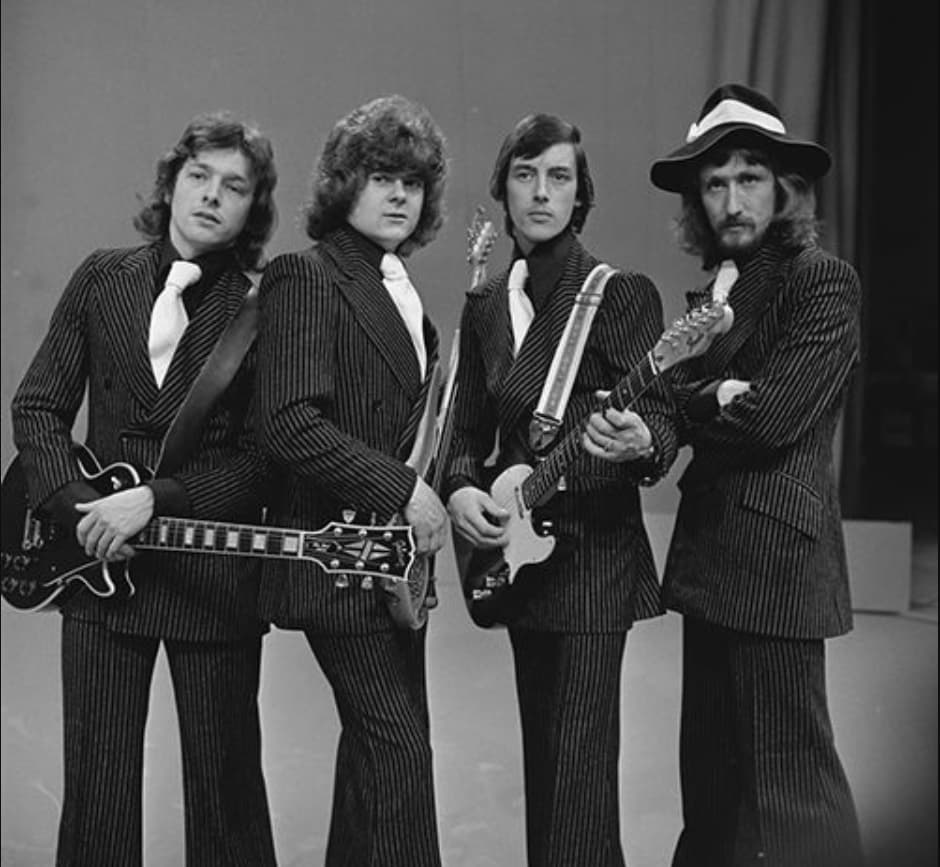
“The Night Chicago Died” chronicles a fictitious battle between Al Capone’s gang and the Chicago Police Department.
A Gangland Saga in Song: Remembering Paper Lace and “The Night Chicago Died” 🌆
Ah, 1974. A year that feels like a lifetime ago, yet the memories are as vivid as a photograph. The air was thick with the scent of rebellion and change, and the radio was our constant companion, a portal to a world of sound. Amidst the glam rock theatrics and the soulful crooning of singer-songwriters, a peculiar and unforgettable song emerged from the UK, a tune that sounded less like a pop hit and more like a cinematic crime drama. That song, of course, was “The Night Chicago Died” by the British band Paper Lace.
The song’s rise to prominence was nothing short of meteoric. It captured the imagination of a generation with its vivid storytelling and undeniable hook. In the United States, it was an absolute juggernaut, climbing all the way to the number one spot on the Billboard Hot 100 on August 17, 1974, and holding that position for two weeks. It was a feat that few British acts could claim at the time. In the UK, its success was also significant, peaking at number three on the UK Singles Chart. It was a global phenomenon, resonating with listeners who were captivated by its dramatic narrative.
The story behind the song is as compelling as the song itself. It’s a tale of a fictional, bloody confrontation between the infamous Al Capone’s gang and the Chicago Police Department. The lyrics, penned by the band’s drummer Phil Wright and singer Peter Robinson, are told from the perspective of a young man, a son of one of the policemen, who vividly recalls the night his father went out to face the mob. It’s a classic narrative of good versus evil, set against the backdrop of the roaring twenties, with the rain-slicked streets of Chicago as its stage. The line, “Daddy, I’m so scared / This is the night the lights went out in Chicago,” became an iconic and haunting refrain. While some critics initially dismissed it as a novelty song, it’s the kind of tune that sticks with you long after the final note fades. It’s a masterclass in musical storytelling, painting a picture with every chord and lyric.
However, a crucial piece of the song’s story is often forgotten or misunderstood. Paper Lace was not the first to release this tune. The American band Looking Glass, famous for their hit “Brandy (You’re a Fine Girl)”, had recorded and released their version of the song in the spring of 1974. Their version, titled “The Night Chicago Died”, was set to be their follow-up single. However, their label decided against releasing it as a single, and it remained an album track on their second album, “Looking Glass”. Meanwhile, across the Atlantic, Paper Lace had a huge hit with their rendition, which ultimately overshadowed the original. This little tidbit of music history adds another layer to the song’s legacy, a quiet what-if that lingers in the annals of pop music.
Listening to “The Night Chicago Died” today is a journey back in time. It’s an instant trip to the days of bell bottoms, sideburns, and the raw energy of 70s rock. It’s a song that proves that a great story, a powerful melody, and a nostalgic sense of drama are timeless ingredients for a musical masterpiece. For those of us who remember hearing it on the radio for the first time, it’s more than just a song; it’s a memory. It’s the soundtrack to a summer long ago, a summer when we were young, and the world was full of possibilities. 🎵